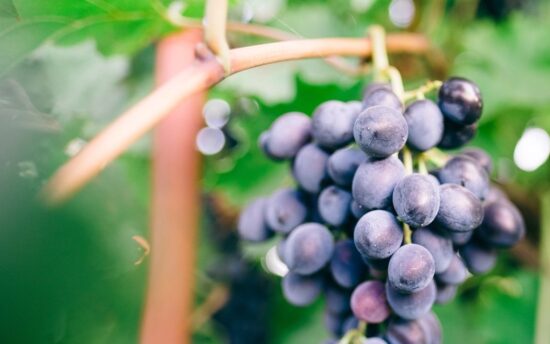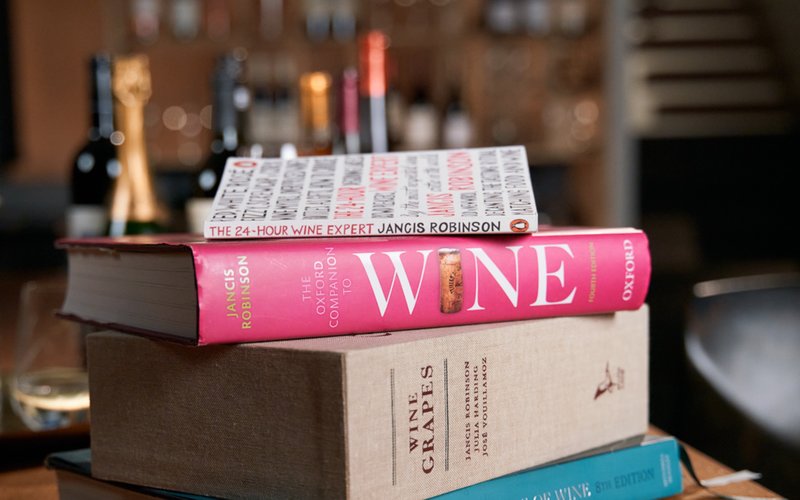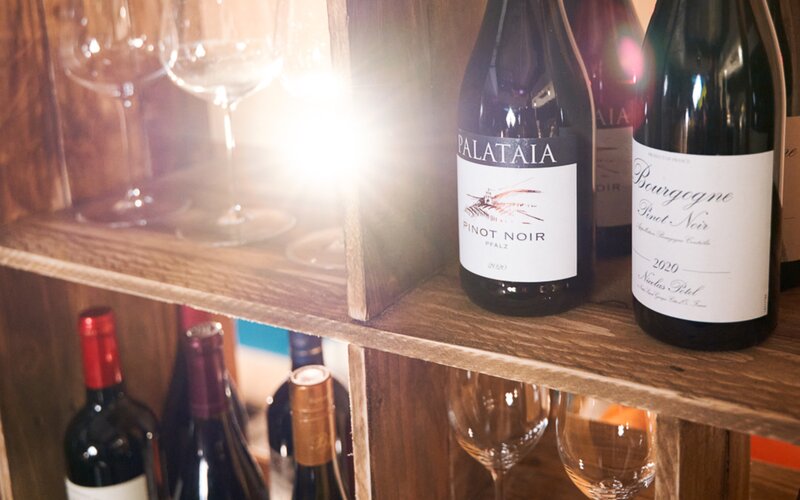
As more people make the leap to veganism or start incorporating more plant-based food into their diets, many are surprised that some of the food and drink they consume that seems vegan, in fact, isn’t. Take wine for example. Wine is made from grapes, right? Correct! But there’s more to it than that.
If you’re asking yourself why wine isn’t vegan, you’re in the right place. In this article, we’ll explain why this is, whilst equipping you with the basics of vegan wine.
Is wine vegan?
In short, some are, and some are not. It’s all to do with the process. Wine, as many of us know, is fruit-based. Grapes are collected from their vines and then are pressed and fermented. This might be the extent of your knowledge of how wine is made. But what many people don’t realise is, winemakers often use animal products in their production process.

Why are some wines not vegan?
If you’re wondering what exactly makes some wine incompatible with a vegan diet, it’s all to do with the winemaking process. Once the grapes are collected from their vines and pressed, the wine is ready for fermentation. Here, the wine goes into a large tank and is left to ferment. Over time, yeast begins to grow, and reacts with the sugars in the juice, gradually turning it into wine.
At this stage,natural molecules like tartrates, phenolics and tannins often appear and make the appearance of the wine slightly cloudy. The wine will be perfectly safe to drink, but winemakers have found their customers prefer to drink wine that is clear, rather than cloudy.
Therefore many winemakers remove this cloudiness in the wine, using fining agents. The use of fining agents gives white and rosés their translucent appearance. In red wine, fining agents can be used too, to counterbalance bitterness. It’s in these fining agents that we edge into the non-vegan territory.
Many of the traditional fining agents in wine contain animal products – like albumin (egg whites), casein (milk protein) or isinglass (gelatine found in fish bladder membranes). Like most industries, the wine sector has evolved to create crafty new vegan alternatives to these agents, in order to make their products vegan. Some of the most popular are – bentonite (a mineral found in clay), limestone and plant casein (protein taken from plants).

Where can I buy vegan wine?
Vegan wine is becoming increasingly more accessible. It’s widely available for purchase online, in supermarkets, from wine merchants, and even in restaurants too. Some producers may even offer vegan wine tastings (or you could hold your own, with our free wine tasting template).
Today’s winemakers are leaning into veganism’s popularity, and many are now making it quite evident on their labels if they are vegan. Supermarket brands have been hailed as one of the best at doing this. In some cases, the term ‘unfined’ will be written on a bottle’s label, which indicates that the product is vegan friendly. In other cases, producers may be a little more explicit with their labels. Some organic producers have been known to label their products ‘VG’ to signify they’re vegan.
It’s also worth exploring your local organic health food shop or local organic wine producers to see if they have any vegan red wine or vegan white wine ranges in stock. Many organic producers place more emphasis on the quality of their wine, and others focus on their impact on the planet, so opting for one of these may mean you can enjoy every sip that little bit more.
Sustainability in winemaking
According to a 2021 survey by Vegan Food & Living magazine, 22% of people who have chosen a vegan diet cite environmental concerns as their main motivation. Winemakers are noting the shift and are starting to bring about positive change in their own practices, and for the sector at large. Across the industry, key figures accept there is a part for everyone to play – producers, merchants, and shippers alike.
Wine seems so wholesome and green, doesn’t it? And it’s up to the wine industry to make sure that that image corresponds to reality.
Jancis Robinson, British wine critic, journalist and wine writer.
So far, a large effort has been placed on vineyards and wineries themselves. Many in these spaces are assessing their water usage, the efficiency of their buildings, and the amount of chemical waste they produce. Others are investing their resource into the science of soil, uncovering the impacts of climate change (of which there are many), and what it means for the future of winemaking. A new and exciting move for the sector even looks at capturing carbon from the fermentation process.
Whether you’re looking to make more conscious consumption habits or are just keen to tease your tastebuds with something new in your wine glass, it’s worth exploring some of the vegan wines available out there. See Jancis Robinson’s online wine course, where she shares insight into organic, natural and biodynamic wines, and the ever-changing impact of climate change on our wine regions and their grapes.

Learn more about wine
Join Jancis Robinson as she unpacks all her wisdom from her 45-year wine career into this 6-hour course. Along the way, you’ll explore some of the most pressing issues facing the wine world today, whilst soaking up her insights on wine tasting and selecting the right bottle.

Give the gift of knowledge
Surprise a special someone with a year's access to BBC Maestro or gift them a single course.



